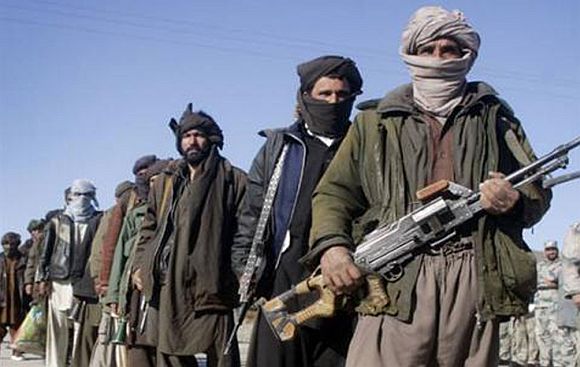
The international pressure on Pakistan, which has increased over the past few years, to break off the intimate relationship between the ISI and Lashkar-e-Tayiba has come to naught, an eminent US expert and a key foreign policy advisor to the Romney campaign has said.
"There has been increasing international pressure on Pakistan to break off this intimate relationship between the ISI and LeT, but it has thus far come to naught," Ashley Tellis, who is senior associate, South Asia Programme with the Carnegie Endowment for Peace, said in his latest policy outlook The Menace That Is Lashkar-e-Tayiba.
Tellis, who played a key role in the historic India-US civilian nuclear deal, is co-chair of the Af-Pak working group of the Romney Campaign.
...

Ever since President George W Bush initiated the global campaign against terrorism, the US has struggled mightily to convince Pakistan that its deepest threats emerge from within its own country and not from the outside, but US efforts to wean Pakistan, especially the military there, away from its obsession with India and away from fomenting terrorism to satisfy this obsession have failed, he wrote.
"Islamabad continues to implement a self-serving counterterrorism strategy that involves targeting only those terrorist groups that threaten its own security, such as the Pakistani Taliban, even as it continues to provide succor and support to those elements that threaten India and Afghanistan," Tellis wrote.
"Given the objective of bleeding India through a thousand cuts but not wounding it to a point of automatically embarrassing Pakistan or precipitating a major subcontinental war, the ISI has sought -- especially after the 2008 attacks in Mumbai -- to "modulate" the object and intensity of LeT's violence but emphatically not to end it," he observed.
...

Tellis said although LeT planners do not require formal sanction or information from the ISI in regard to contemplated attacks, they are now especially conscious of the need to ensure that these attacks cannot be readily attributable to the ISI, the Pakistan Army, or formally to the Pakistani state.
"To the degree possible, they also attempt to maintain some vague limits on the violence inflicted on India. They do so not out of any particular compassion for the Indian people but because their ISI patrons have emphasized the importance of not provoking India excessively at a time when Pakistan has its hands full managing the continuing insurgency in its tribal areas and in Baluchistan, as well as navigating a deeply frayed relationship with the United States," he noted.
Tellis said LeT represents a specific state-supported and state-protected instrument of terrorism that operates from the territory of a particular country -- Pakistan -- and exemplifies the subterranean war that Islamabad, or more specifically Rawalpindi, has been waging against India since at least the early 1980s.
...

To the chagrin of its citizens, he said, India has also turned out to be a terribly soft state neither able to prevent many of the terrorist acts that have confronted it over the years nor capable of retaliating effectively against either its terrorist adversaries or their state sponsors in Pakistan.
"The existence of unresolved problems, such as the dispute over Jammu and Kashmir, has also provided both Pakistani institutions and their terrorist clients with the excuses necessary to bleed India to death by a thousand cuts.
Still, these unsettled disputes remain only excuses. They should be addressed by New Delhi seriously and with alacrity, but there is no assurance that even a satisfactory resolution of these problems will conclusively eliminate the threat of terrorism facing India and the West," he said.